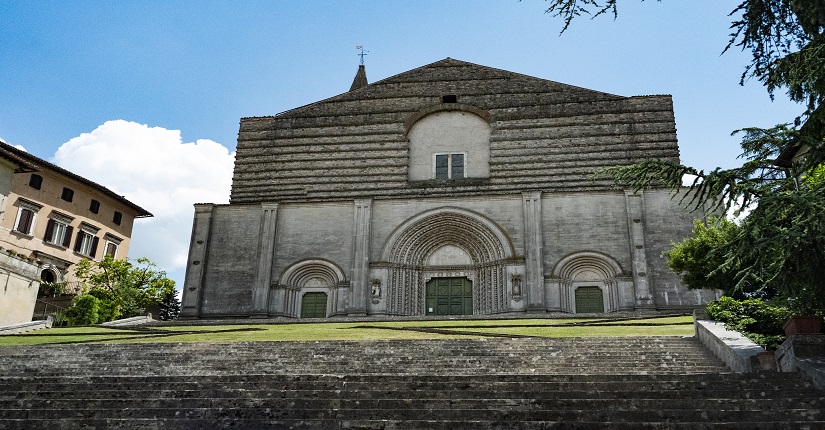Jacopone da Todi, the best known Franciscan poet in the world: let's go through his life together.
Jacopo de Benedetti, "Iacobus Benedictoli de Tode", was born in Todi from a noble family around 1230/36. Jacopone soon replaced the original name: Iacobus. The house of birth is attributed in the Colle district.
The young Jacopone began his career as a notary public after studying in Bologna. Dissolved and intact, Jacopone changed radically due to an accident: in 1268 he lost his wife due to the collapse of the floor of a ballroom during a reception.
The event shook the young man to such an extent that he began to behave bizarrely and perform extravagant acts to desecrate himself and mock human illusions.
For about a decade he went around Todi with his body covered with rags, the grey habit with the long and wide hood of "bizzocone". This love for suffering, this enjoyment of irritations determined the depiction of his alleged madness, on which various anecdotes circulated.
It is said that during this path of penitence and humiliation he showed up at the wedding of his naked brother, sprinkled with fat and feathers, or that he arrived at a party on all fours with a donkey saddle on his back.
After ten years he decided to enter as a layman into the Franciscan order and even at the convent his madness did not cease: in order to overcome the desire for a calf's choratella he bought it, hung it in his cell kissing it without ever tasting it. When the meat went bad, flooding the convent with stench, the other friars were angry, but the Lord rewarded Jacopone for resisting by filling the building with a pleasant scent.
The election of the new Pope Boniface VIII led Jacopone to sign the Manifesto of Length, in which Boniface's assignment was declared illegitimate. The response of the new Pope was swift and excommunicated all the signatories of the Manifesto and, after the taking of Palestrina, Jacopone was chained and led to Todi and was sentenced to perpetual imprisonment, in the dungeons of the convent of San Fortunato.
The physical suffering could be tolerated, but the distance from the Christian community, the excommunication, was an endless torment for the friar.
From prison Jacopone wrote dramatic letters to Pope Boniface VIII between irony and pride, explicitly showing that he had not changed his mind about the Pope, but begging him to free him from excommunication in exchange for other corporal punishment.
In 1303 Boniface VIII died and the new Pope Benedict IX freed him from captivity and took away his excommunication. Jacopone, now old and tired, retired to a Franciscan convent near Todi, probably the convent of San Lorenzo, in Collazzone, where the teachings of St. Francis were rigidly followed, and probably once close to spiritual instances.
In December 1306 Jacopone fell seriously ill and, according to legend, on the point of death he declared that he wanted to receive the sacraments only from the hands of his friend friar Giovanni della Verna.
Jacopone's body was transported to the Franciscan monastery of Montecristo in Todi. In 1433 the bishop Antonio da Anagni had the remains brought first to the Hospital of Charity, then to the Temple of San Fortunato.
Absolute humility, just like St. Francesco, was the basis of his ideas, as well as the conviction that every earthly honor makes man unworthy of God's love.
Jacopone therefore invited not only to renounce any kind of honor, but also to repudiate the very desire for holiness.
From the ancient collection preserved in the library to the paintings and frescoes depicting him, from the probable place of his death to the tomb in San Fortunato, passing through what tradition indicates as his birthplace: discover the itinerary "Jacopone in the city".






